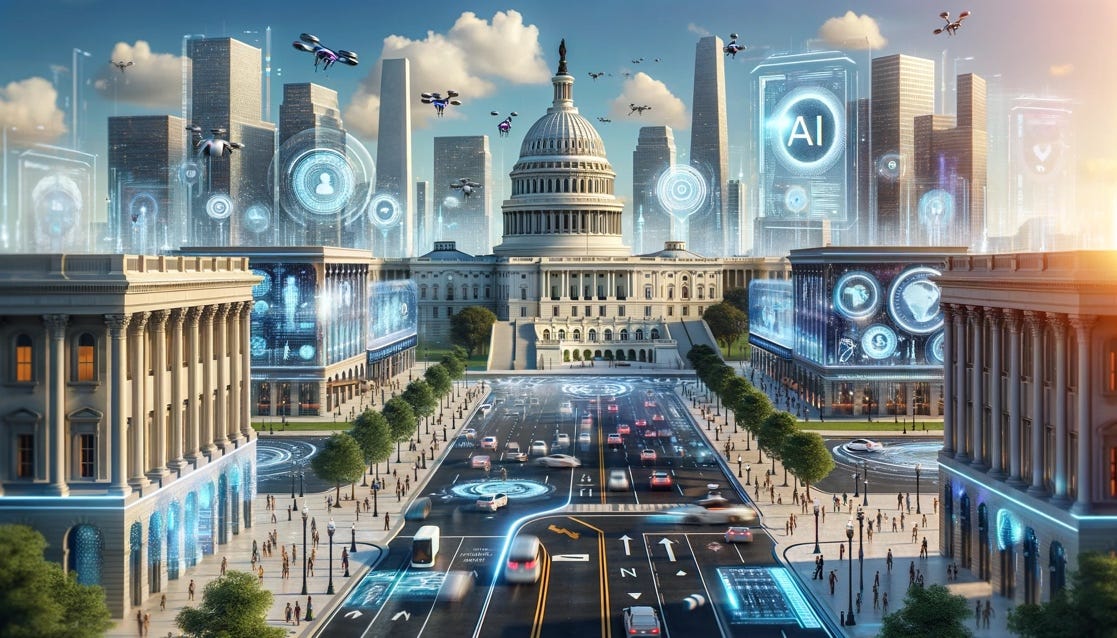2024 could be a turning point for artificial intelligence (AI) in the US. While the legislative landscape remains unfixed and unclear, emerging priorities give us a glimpse into issues that should be addressed.
Perhaps the most significant risk factor to progress is the simple reality that this is a presidential election year. How that impacts Congress’ ability to get meaningful work done in this area remains to be seen. They make it very hard to be optimistic.
Here’s my recommended agenda for how Congress might shape AI's future:
A National AI Strategy: One key focus will be crafting a comprehensive national AI strategy. This involves collaborating with allies to establish global standards and norms, promoting responsible AI development, and safeguarding national security and economic interests. Expect a flurry of bills seeking to weave these threads together.
Investing in the Future: Research, Education, and Innovation: To keep pace with global competitors like China, Congress will push for increased AI research funding. This includes initiatives promoting responsible data practices, AI education, workforce training, and building innovation hubs. Such investments are crucial for maintaining US leadership in AI.
Regulating AI in High-Risk Sectors: Areas like healthcare, transportation, and criminal justice raise pressing concerns about AI's potential misuse. We expect heightened regulation in these "high-risk sectors" to establish accountability and mitigate potential harm. (For example, H.R.4704 - Artificial Intelligence and Biosecurity Risk Assessment Act.)
Jobs, Bias, and Ethics: As AI automates tasks and business processes, job displacement becomes critical. Congress will explore policies like retraining programs to help workers adapt. Additionally, studies and a bill to address regional AI systems that combat AI bias and discrimination (H.Res.649) will inform the development of workplace anti-discrimination laws.
Intellectual Property and Transparency: LLMs have intensified the need to clarify IP rights and copyrights to spurn litigation and increase ethical adoption. Additionally, Congress will likely address transparency concerns by demanding clear explanations from government agencies and private companies of how AI algorithms function.
Authorizing Government Use: Congress is actively drafting legislation to manage and regulate the use of AI across various sectors, including defense, agriculture, and finance, through bills like S.3004 for Department of Defense data management, H.R.6806 for AI in agriculture, and amendments to the Financial Stability Act for AI in finance.
While this post outlines potential AI legislation for 2024, the agenda remains fluid. Political, economic, and technological shifts will undoubtedly reshape the landscape. AI's inherent complexity presents both opportunities and challenges, not just for the US but for the world. Navigating this dynamic landscape will be a defining task for Congress in the future.
It is highly likely that state governments will actively engage in the development and implementation of legislative measures focused on AI. These initiatives should encompass some of the same regulations and policies aimed at ensuring the ethical use, new standards for data privacy, accountability, and healthcare, education, and public administration guardrails.
The avowed goals of both congressional and state actions are to protect citizens' rights, promote transparency, and foster a safe and responsible environment for AI innovation and growth. We’ll see if politics and lobbying intervene and there’s instead agendas pursued for and against companies versus protecting citizens.




